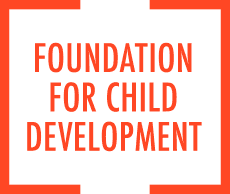https://www.fcd-us.org/carrots-and-sticks-new-jerseys-effort-to-create-a-qualified-pk-3-workforce/
The Foundation for Child Development’s Advancing PreK-3rd Series
No. 6
Rutgers University researchers Sharon Ryan and Carrie Lobman show how New Jersey established a set of mandates supported by incentives to upgrade the qualifications of the PK-3 teaching workforce in the state’s poorest school districts.
Prekindergarten (PK) is one of the key building blocks of a new first level of public education that extends from PK through Grade Three (PK-3) in the United States. Traditionally the education of young children has been the province of multiple agencies (Head Start, child care, public schools). This situation is beginning to change. Many states currently offering PK are bringing these agencies together through a mixed service delivery model .
While the use of mixed delivery systems on the front end of PK-3 experiences is a reality in many states, providing an adequate supply of qualified teachers given the current workforce is no easy task. Raising the qualifications of PK teachers is expected to ensure program quality and facilitate greater cooperation, integration, and collaboration with K-3 teachers. However, nationally only about 50 percent of Prekindergarten teachers have a bachelor degree of any kind and many do not have expertise or specialized training in early childhood education. This policy brief outlines the efforts taken in New Jersey to upgrade the qualifications of the PK teaching workforce as part of a statewide Prekindergarten initiative to reduce the achievement gap in the state’s poorest school districts. The experiences of key stakeholders involved in this reform effort provide useful lessons for administrators and policymakers seeking to create a qualified Prekindergarten teaching force.
Before outlining these lessons, this brief provides an overview of the rationale for adopting policies that combine carrots to create incentives and the capacity to change with sticks or mandates that create the will to change.
This brief was built upon the following documents:
- Creating a Qualified Preschool Teaching Workforce Part I: Getting Qualified: A Report on the Efforts of Preschool Teachers in New Jersey’s Abbott Districts to Improve their Qualifications.
- Toward a Unified System of Early Childhood Teacher Education and Professional Development: Conversations with Stakeholders.
- Educating Preschool Teachers Mapping the Teacher Preparation and Profession Development System in New Jersely.
- Finding the Gaps, Creating Opportunities: Research to Inform the Implementation of a Coordinated System of Professional Developement and Teacher Preparation.
